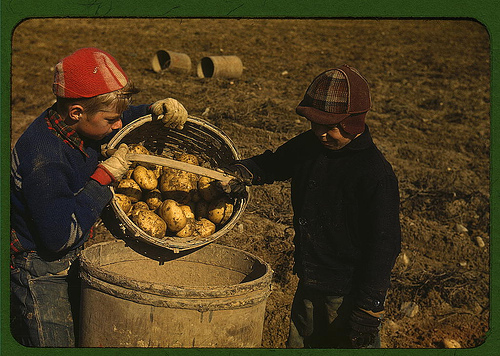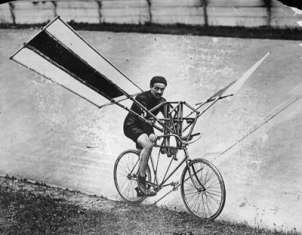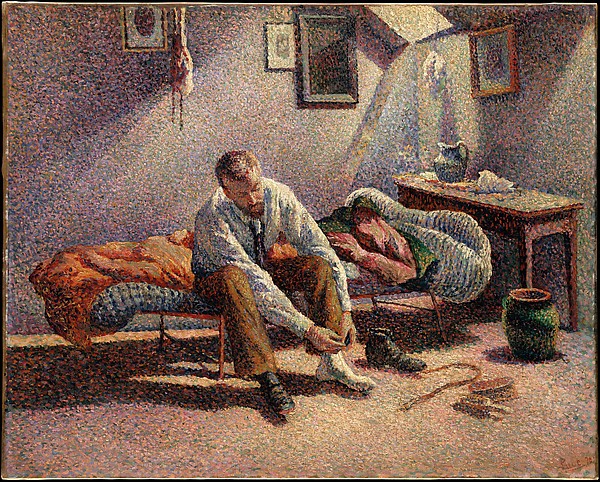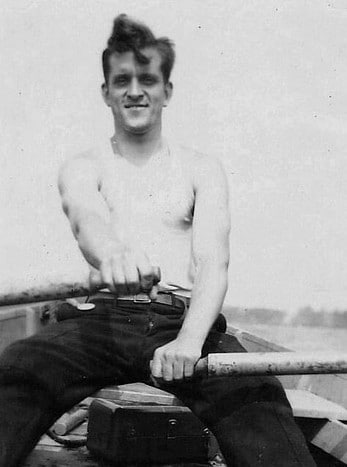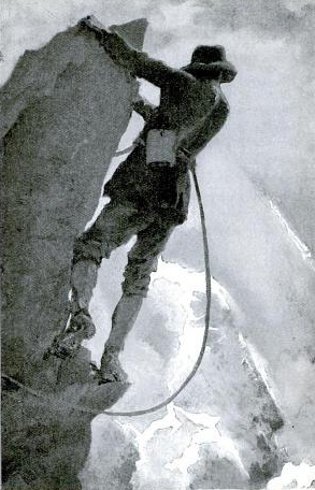
The Gains of Drudgery
From The Making of Manhood, 1894
By William James Dawson
By drudgery, I mean work that in itself is not pleasant, that has no immediate effect in stimulating our best powers, and that only remotely serves the purpose of our general advancement. Such a definition may not be perfect, but it expresses with reasonable accuracy what we usually understand by the term.
Now, if this is what we mean by drudgery, it is clear that we are all drudges. We all have to do many things, day by day, which we would rather not do. Even in the callings that seem to present the most perfect correspondence between gifts and work, such as those of the writer or the artist, drudgery dogs the heels of all progress…We show some perception of these facts in our common sayings, that easy writing makes hard reading, and what costs a man little is usually worth little. But few of us have any adequate sense of the immense toil which lies behind the brilliant successes of the great artist or famous writer. And the same thing might be said of the lives of great statesmen, politicians, reformers, merchants, and memorable men in all walks of life. Examine such lives, and the amount of prolonged toil which lies behind all the glitter of public fame is enormous, and to the indolent even appalling. If any man of the Elizabethan period gives the impression of having achieved great things with a certain airy ease and instinctive facility of touch, it is Walter Raleigh. Yet it was of Raleigh that Elizabeth said, “he could toil terribly.” The same thing may be said of every great man, so that it is small wonder that we have learned to believe that genius itself is simply an infinite capacity for taking pains.
When a man grumbles about the drudgery of his lot, then I am entitled to conclude that he has not learned the discipline of work, and that it is native indolence rather than suppressed genius which chafes against the limitations of his environment. Browning, in his poem of The Statue and the Bust, has laid down the doctrine that it is a man’s wisdom to contend to the uttermost even for the meanest prize that may be within his reach, because by such strenuous contention manhood grows, and by the lack of it manhood decays.
The clerk who does not strive to be the best clerk in the office, the carpenter who is not emulous of being the best carpenter in the workshop, is not likely to achieve excellence in any other pursuit for which he imagines his superior talents better fitted….I have little faith in the youth who is always crying out against his condition, and telling an incredulous world what great things he could do if his lot were different. The boast of general talents for everything usually resolves itself into particular talents for nothing. The incompetent clerk, in nine cases out of ten, would be equally incompetent as writer, artist, or speaker. If I were adjured to help a youth to some sphere supposed to be better suited to his gifts, I should first of all need to be convinced that he had performed faithfully the duties of the inferior sphere in which he found himself. The superior talent always shows itself in the superior performance of inferior duties. It is the man who is faithful in little things to whom there is given authority over larger things. He who has never learned the art of drudgery is never likely to acquire the faculty of great and memorable work, since the greater a man is, the greater is his power of drudgery.
But the gains of drudgery are not seen only in the solid successes of life, but in their effect upon the man himself. Let me take in illustration a not infrequent case. Suppose a man gives up his youth to the struggle for some coveted degree, some honour or award of the scholarly life. It is very possible that when he obtains that for which he has struggled, he may find that the joy of possession is not so great as the joy of the strife. It is part of the discipline of life that we should be educated by disillusion; we press onward to some shining summit, only to find that it is but a bastion thrown out by a greater mountain, which we did not see, and that the real summit lies far beyond us still. But are we the worse for the struggle? No; we are manifestly the better, for by whatever illusion we have been led onward, it is at least clear that without the illusion we should not have stood as high as we do. So a man may either fail or succeed in gaining the prize which he covets; but he cannot help being the gainer in himself. He has not attained, but he has fitted himself for attaining. It is better to fail in achieving a great thing than to succeed in achieving a little one, and the struggle that fails is, in any case, to be preferred to the stolidity which never aspires. And why? Because the struggle is sure to develop certain great and noble qualities in ourselves. Thus, though such a man may not gain the prize he sought, he has gained a command over his chance desires, a discipline of thought, a power of patient application, a steadiness of will and purpose, which will stand him in good stead throughout whatever toils his life may know in the hidden years which lie before it. And even if he gain the prize he sought, the real prize is found not in a degree, a certificate, a brief taste of applause on a commemoration day, but in the deeper strength of soul, the wider range of wisdom, which the long discipline of unflagging effort has taught him. So true is this, that Lessing, who was among the wisest of thinkers, said, that if he had to choose between the attainment of truth and the search for truth, he would prefer the latter. The true gain is always in the struggle, not the prize. What we become must always rank as a far higher question than what we get.
Tags: Manvotionals

